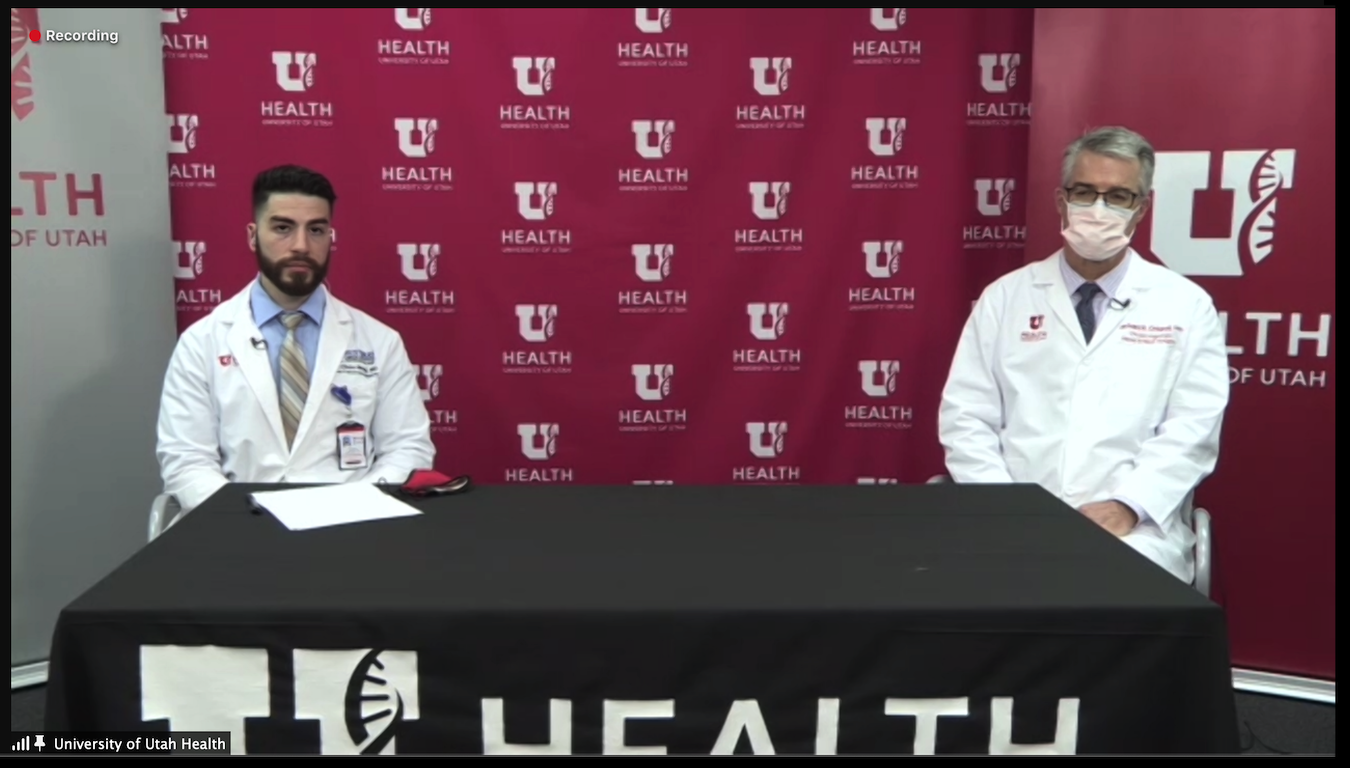(KCPW News) Doctors at University of Utah Health say they recently treated a man suspected of suffering from an extremely rare blood-clotting syndrome after receiving the Johnson & Johnson COVID-19 vaccine. During a press conference Wednesday afternoon, doctors with the healthcare group said their experts immediately diagnosed and treated the man who is now recovering at home.
The doctors stressed that the clots are extremely-rare and treatable.
Yazan Abou-Ismail, MD, an assistant professor of medicine in the division of hematology said that ten days after receiving the single-dose vaccine last month the man, who is younger than 50, began experiencing leg pain that persisted for several days. The man was admitted to a local hospital where he was diagnosed with deep venous thrombosis – blood clots in his legs – and received blood thinners before being released.
The next day the man was admitted to University of Utah Hospital with chest pain. Doctors there conducted a CAT scan and found that the man had blood clots in his lungs as well. After four days of hospital treatment the man’s symptoms resolved and he was released, but continues to be monitored.
The case reported by U of U Health on Wednesday has not yet been confirmed by the CDC as vaccine-induced immune thrombotic thrombocytopenia (VITT), but Dr. Abou-Ismail said it had all the hallmarks of the rare but serious blood-clotting condition. More than 8 million doses of the J&J vaccine have been administered and only 17 occurrences of the clots have been documented.
Dr. Richard Orlandi, associate chief medical officer for ambulatory health at U of U Health stressed that the clotting was an extremely rare occurrence.
The risk of this complication is extraordinarily rare – 1 or 2 out of a million – and the risk of contracting COVID without vaccination, of becoming ill, of becoming hospitalized, or even the risk of death from COVID – is much higher.
– Richard Orlandi, MD, U of U Health
University of Utah Health says it will continue to administer the Johnson & Johnson vaccine, which doctors say is generally safe.

The doctors said that symptoms to watch out for include severe and persistent headaches, changes in vision, seizures, severe or persistent abdominal, chest, or leg pain, and trouble breathing. They said those symptoms could present anywhere between 4 and 28 days after the a person receives the J&J vaccine.
Two weeks ago, following guidelines from the FDA and CDC, Utah lifted a statewide pause on the administration of the vaccine.
At the time, the Utah Dept. of Health said that providers administering the vaccine and vaccine recipients or caregivers should review FDA patient and provider factsheets that include information about the risk of the syndrome, which has occurred in a very small number of people who have received the single-dose vaccine.
Dr. Orlandi said that it was important to not overreact to what appeared to be Utah’s first recorded case of blood clotting.
“There are many interventions, whether it be birth control pills or other things, that have a much higher risk of forming blood clots,” Orlandi said.
“We have a much higher risk in our daily activities of significant injury,” he added.
“This is exquisitely rare.”
How do you feel about this topic?
Is there anything else you think we should know? We'd like to hear your thoughts. Send us your feedback using the form below.




